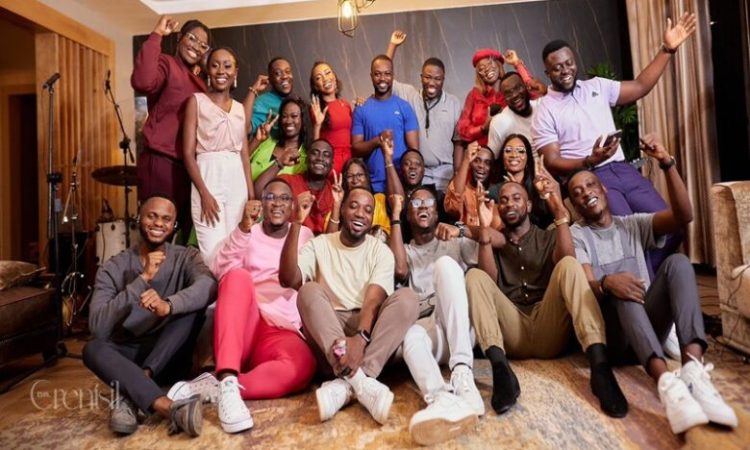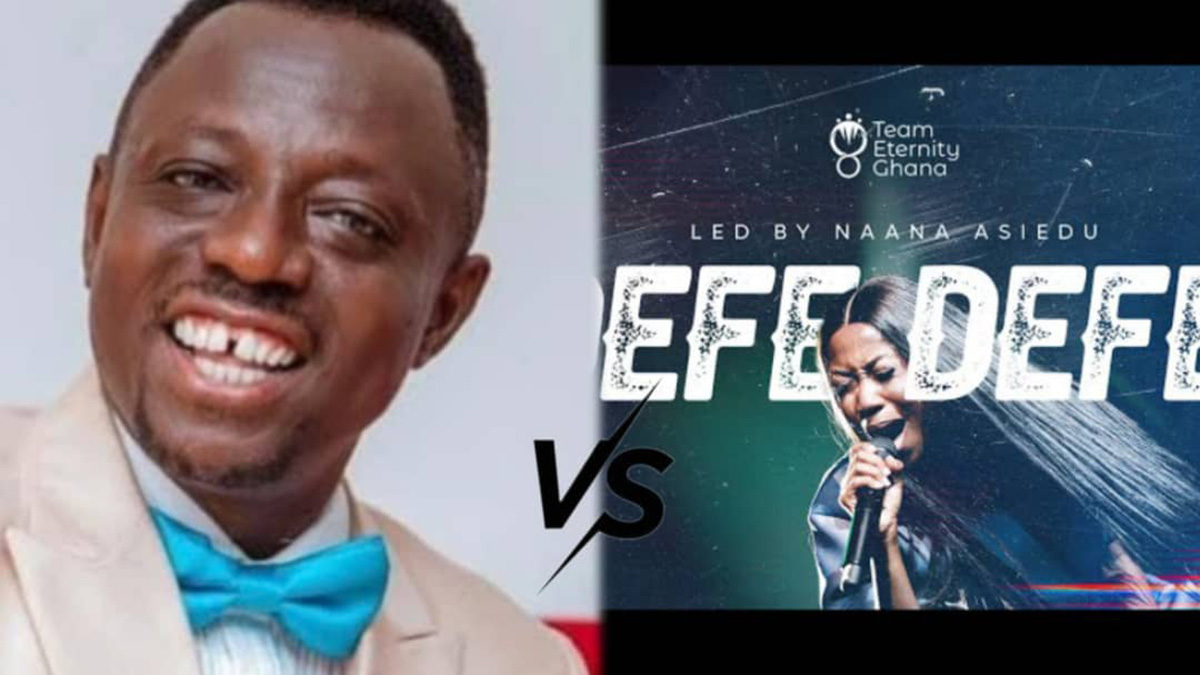Dance of Dispute: Ghana’s Chart-Topping ‘Defe Defe’ Sparks Global Moves and a Heated Copyright Showdown

“It’s disappointing to see my work reimagined without acknowledgment,” Mickey stated in a press release. “It’s not just about recognition, but respecting the roots of Ghanaian gospel music and the creative contributions that came before.” – Kwame Mickey
ACCRA, GHANA — The soaring success of Team Eternity Ghana’s gospel track “Defe Defe” has become a lightning rod for a high-stakes copyright dispute, igniting questions of artistic ownership, influence, and intellectual property rights. After hitting the top of Ghana’s Apple Music Top 100 chart in a matter of days, the song has swept across Africa, inspiring an infectious dance challenge that took social media by storm. But as the celebratory echoes of “Defe Defe” resound globally, the group now faces serious allegations from veteran Ghanaian producer Kwame Mickey, who claims the lyrics were lifted from his own work.

A Meteoric Rise
Team Eternity Ghana released “Defe Defe” in May, almost immediately captivating audiences with its infectious rhythm, spirited lyrics, and uplifting message. The song was catapulted to fame when popular Britain’s Got Talent finalist Afronitaaa launched a dance challenge that went viral on TikTok, Instagram, and YouTube. The challenge was simple yet enthralling, blending traditional African movements with high-energy choreography that made it accessible for fans worldwide. Within three months of the track’s release, the original live performance on YouTube had amassed 4.4 million views, a testament to the song’s powerful resonance and massive reach.
“Seeing our song reach people all over the world is humbling and exhilarating,” said Emmanuel Mensah, lead vocalist for Team Eternity Ghana. “To witness so many people connect with our music has been beyond anything we imagined.”
The song’s uplifting melody and infectious beats quickly earned it a place not just in music charts but also in the hearts of listeners across continents, with many praising its ability to merge traditional Ghanaian gospel sounds with a modern edge.

Claims of Copycat Controversy
However, the very elements that brought “Defe Defe” its unique charm and wide appeal are now at the heart of a complex legal and ethical clash. Enter Kwame Mickey, a respected name in Ghana’s music scene, who claims that Team Eternity Ghana used lyrics from an earlier song he produced—coincidentally titled “Defe Defe”—without permission. Mickey’s version of “Defe Defe,” created in 2003, had a niche following in Ghana’s gospel circuit, although it never enjoyed the same level of fame as the new rendition.
Mickey alleges that Team Eternity Ghana borrowed not only the title but entire lines from the original song’s lyrics, which he says violate copyright law. “It’s disappointing to see my work reimagined without acknowledgment,” Mickey stated in a press release. “It’s not just about recognition, but respecting the roots of Ghanaian gospel music and the creative contributions that came before.”
The Legal Battle Begins
Kwame Mickey filed a formal complaint with the Ghana Music Rights Organization (GHAMRO), seeking recognition for his contributions and a percentage of royalties generated from Team Eternity Ghana’s song. Legal experts argue that the case could hinge on whether Mickey’s original lyrics and composition were distinct enough to merit copyright protection and if Team Eternity Ghana’s version used elements that are recognizable as unique to Mickey’s work.
“This case has brought a much-needed conversation to the forefront,” said Ama Boakye, a copyright attorney familiar with Ghana’s entertainment industry. “If it goes to court, it could set a precedent on how Ghana approaches musical copyright disputes and how artists can protect their creative legacies.”
The Community Weighs In
The lawsuit has sparked heated debate among fans and critics alike, who are divided on the issue of originality and appropriation. Social media platforms have been abuzz with opinions, with some fans questioning whether music—especially gospel music with its deep-rooted traditions—can ever be truly “original.” Others argue that Team Eternity Ghana’s track, while an instant favorite, should give credit where it’s due if it indeed borrowed from a lesser-known artist.
“What’s most important here is how these groups can acknowledge each other’s contributions,” commented Kofi Yeboah, a music producer from Accra. “Music is often inspired by predecessors, but there’s a fine line between homage and theft.”
Watch Music:
Moving Forward: Potential Outcomes
Despite the controversy, Team Eternity Ghana continues to celebrate the success of their song while facing the copyright claim with an official statement. “We are deeply inspired by Ghana’s rich gospel history and, as artists, our intent has always been to honor and uplift it,” the group said in response. “We look forward to resolving this matter through the proper channels.”
The case is still in its early stages, with both sides preparing for what could be a prolonged legal battle. For Team Eternity Ghana, the stakes are high. Losing could mean not only financial repercussions but also a significant blow to their reputation. For Kwame Mickey, the case is about more than royalties—it’s a stand for artistic integrity and a reminder of the contributions of Ghana’s earlier gospel pioneers.
As the world watches, the copyright dispute over “Defe Defe” underscores a critical issue in Ghana’s growing music industry: the need for clear and enforceable intellectual property protections that support artists’ work while encouraging innovation and cultural preservation. For now, fans and music lovers wait eagerly for the next beat in this unfolding saga.




